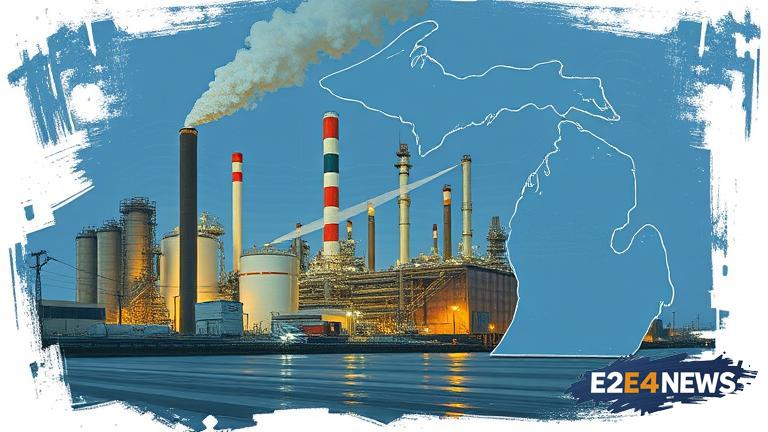A significant refinery shutdown in the Midwest has sent shockwaves throughout the region, causing gas prices to skyrocket in West Michigan. The sudden closure has resulted in a shortage of gasoline supplies, prompting prices to rise dramatically. As a result, residents and commuters in West Michigan are facing increased costs at the pump, with some areas experiencing price hikes of up to 20 cents per gallon. The refinery shutdown has been attributed to a combination of factors, including maintenance issues and unforeseen technical problems. Industry experts predict that the shutdown will have a lasting impact on gas prices in the region, with some forecasting that prices may continue to rise in the coming weeks. The effects of the shutdown are being felt across the state, with many residents expressing frustration and concern over the increased costs. Some have taken to social media to voice their discontent, calling on state officials to take action to mitigate the effects of the shutdown. In response, state officials have announced plans to increase the production of gasoline at other refineries in the region, in an effort to stabilize prices. However, it remains unclear how effective these measures will be in the short term. As the situation continues to unfold, residents and commuters in West Michigan are being forced to adapt to the new reality of higher gas prices. Some are exploring alternative modes of transportation, such as carpooling or using public transportation, while others are simply absorbing the increased costs. The impact of the refinery shutdown is also being felt by local businesses, which are facing increased costs for fuel and transportation. Some business owners have expressed concern that the higher costs could have a negative impact on their bottom line, potentially leading to job losses or other economic consequences. Despite these challenges, many residents and business owners remain optimistic that the situation will be resolved in the near future. In the meantime, they are urging state officials to take swift and decisive action to address the crisis. The refinery shutdown has also sparked a wider debate about the need for increased investment in the region’s energy infrastructure. Some experts argue that the shutdown highlights the need for greater diversification in the region’s energy mix, including the development of alternative energy sources such as wind and solar power. Others have called for increased investment in the region’s refineries, to prevent similar shutdowns from occurring in the future. As the situation continues to evolve, one thing is clear: the refinery shutdown has sent a shockwave through the region, and its effects will be felt for some time to come. The people of West Michigan are resilient, however, and are determined to find a way to navigate this challenging situation. With the help of state officials and industry leaders, they are working to find a solution to the crisis, and to get gas prices back under control. In the end, it is likely that the refinery shutdown will serve as a wake-up call for the region, highlighting the need for increased investment in energy infrastructure and alternative energy sources. As the region looks to the future, it is clear that the effects of the shutdown will be far-reaching, and will require a coordinated effort to resolve. The shutdown has also raised questions about the region’s energy security, and the need for greater diversification in the energy mix. Some have argued that the shutdown highlights the need for increased investment in renewable energy sources, such as wind and solar power. Others have called for greater investment in energy efficiency measures, such as improving the fuel efficiency of vehicles. As the debate continues, one thing is clear: the refinery shutdown has sparked a wider conversation about the need for a more sustainable and resilient energy system in the region. The people of West Michigan are eager to find a solution to the crisis, and to get back to normal. With the help of state officials and industry leaders, they are working to find a way to stabilize gas prices, and to prevent similar shutdowns from occurring in the future.
